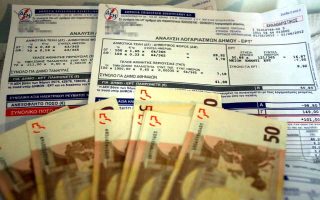Salary cuts not enough to make Greek firms more competitive

The collapse of domestic demand during the financial crisis forced many Greek enterprises to turn to foreign markets in order to survive. Many have done so successfully, which was quite a feat given the conditions in Greece, where corporate competitiveness has been seriously compromised.
Since the outbreak of the crisis the only factor that has assisted the companies’ competitiveness has been the drop in wages, although the non-salary costs of labor – taxation and social security contributions – have soared. The most recent data from the Organization for Economic Cooperation and Development (OECD) put Greece among the countries with considerably high non-salary costs, between 38.3 and 40 percent of the average income, and show that between 2015 and 2016 there was an increase of 1.06 percentage points.
Greek businesses also pay much more for energy than their foreign rivals. Industrial companies, particularly exporters, as well as all consumers, have to pay the price for distortions in the liberalization of the energy market and political choices concerning subsidized energy and support for renewable energy sources. Therefore Greek industries pay about 30 percent more for energy than their rivals in Europe, where the costs for energy-intensive industries are also 20 percent higher than in China and double that in the US.
All these years financing for Greek companies has been insufficient and very expensive; at the same time, their foreign rivals benefited from the loose monetary policy of their central banks, securing liquidity at next to no cost. Some Greek enterprises have moved their headquarters abroad to gain access to loans with interest rates without the country risk.
Bereft of liquidity and in an environment of capital controls, healthy Greek businesses have become the weakest link in the eurozone market where liquidity is abundant. The liquidity deficit for local companies is estimated at some 44 billion euros, as the funding of 133 billion euros in early 2009 declined to 89 billion at end-2017.
The average borrowing rate in Greece is also up to three times the eurozone average: The very few local corporations with access to financing borrow at 7-8 percent, against a eurozone average of 2.5 percent.





